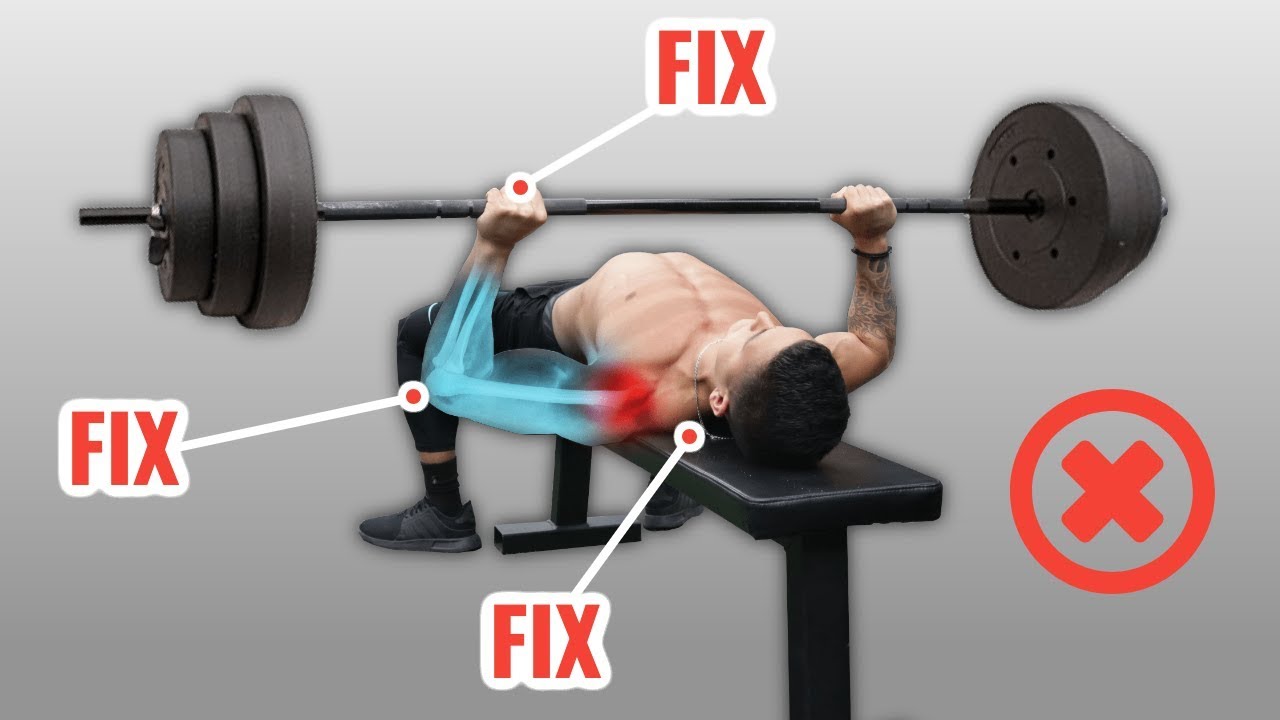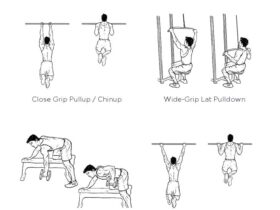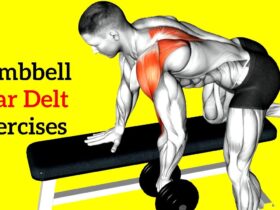Many people love to lift weights. One popular exercise is the bench press. It helps build strength in the upper body. However, some people feel shoulder pain while bench pressing. This can be troubling. It is important to understand this issue. Here, we will explore why shoulder pain happens and how to deal with it.
What is Bench Pressing?
The bench press is a simple exercise. You lie on a bench. Then, you lift a barbell or dumbbells. This works your chest, shoulders, and arms. It is a great way to build muscle. Many people include it in their workout routines. However, not everyone can do it without pain.

Credit: riverstonechiropractic.com
Why Do Shoulders Hurt During Bench Pressing?
Shoulder pain can happen for many reasons. Understanding these reasons is key. Here are some common causes:
- Bad Form: Using the wrong technique can hurt your shoulders.
- Weak Muscles: If shoulder muscles are weak, they may not support you well.
- Tightness: Tight muscles can lead to pain during lifting.
- Injury: Previous injuries may cause pain during exercise.
- Overuse: Lifting too much or too often can cause strain.
Each of these reasons can lead to shoulder pain. It is important to identify the cause of your pain. This will help you find the right solution.
How to Deal with Shoulder Pain
If you feel shoulder pain while bench pressing, do not worry. There are ways to manage it. Here are some tips:
1. Check Your Form
Good form is important when lifting weights. Here are some tips for proper bench press form:
- Lie flat on the bench.
- Feet should be on the ground.
- Grip the bar slightly wider than shoulder-width.
- Lower the bar to your chest, not your neck.
- Push the bar straight up.
Check your form often. This can help prevent pain.
2. Strengthen Your Shoulders
Strong muscles help support your joints. Here are some exercises to strengthen your shoulders:
- Overhead Press: Lift weights above your head.
- Lateral Raises: Raise weights to the side.
- Face Pulls: Pull weights towards your face.
Doing these exercises can help reduce pain over time.
3. Stretch Your Muscles
Tight muscles can cause pain. Stretching can help. Here are some good stretches for your shoulders:
- Cross-Body Stretch: Pull one arm across your body.
- Tricep Stretch: Raise one arm and bend it behind your head.
- Chest Stretch: Hold your arms out and pull back.
Do these stretches before and after lifting weights. This can help keep your muscles loose.
4. Use Lighter Weights
If you feel pain, consider lifting lighter weights. Start with a weight that does not hurt. Gradually increase the weight as you get stronger. This helps your body adjust without causing pain.
5. Take Breaks
Rest is important for recovery. If you feel pain, take a break from bench pressing. You can do other exercises that do not hurt your shoulders. This will help your muscles heal.
6. Consult A Professional
If the pain continues, see a doctor or physical therapist. They can help find the problem. They may suggest exercises to help. Always listen to their advice.
When to Stop Bench Pressing
Sometimes, you may need to stop bench pressing. Here are signs that it is time to stop:
- You feel sharp pain in your shoulder.
- The pain lasts for more than a few days.
- You feel weak or unstable during the lift.
Stopping is important to avoid further injury. Focus on healing first.

Credit: www.youtube.com
Alternatives to Bench Pressing
If bench pressing causes too much pain, try other exercises. Here are some good alternatives:
- Push-Ups: Great for chest and arms.
- Chest Press Machine: Supports your back and shoulders.
- Incline Dumbbell Press: Works upper chest with less strain.
These exercises can help you stay strong without pain.
Conclusion
Bench pressing can be fun and effective. However, shoulder pain can make it difficult. It is important to understand why the pain happens. Check your form, strengthen your muscles, and stretch regularly. Use lighter weights and take breaks when needed. If pain persists, consult a professional. Listening to your body is key.
Remember, you can still get fit without bench pressing. There are many exercises to try. Focus on what works for you. Stay safe, and keep lifting!














Leave a Review